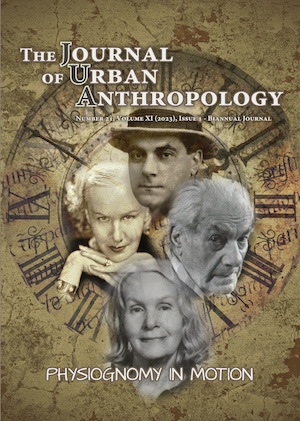The miner’s profile in the transition to a post- industrial society – socio-economic and affective implications of a particular type of shrinkage.
The miner’s profile in the transition to a post- industrial society – socio-economic and affective implications of a particular type of shrinkage.
Author(s): Ioana MăgureanuSubject(s): Economic history, Social history, Social development, Demography and human biology, Rural and urban sociology, Transformation Period (1990 - 2010), Post-Communist Transformation
Published by: EDITURA OSCAR PRINT
Keywords: monoindustrial; mining; Jiu Valley; shrinkage; social;
Summary/Abstract: Nowadays, a lot of attention is directed towards the development of medium and large cities in Romania, as they are being considered major elements of potential in terms of social, economic and natural capital. They represent the key pillars able to ensure the much- coveted territorial cohesion, so hard to achieve in a country where many cities are still facing socio-economic decline. In this context, however, many Romanian cities are left behind - the small cities, with a few tens of thousands of inhabitants, whose label is very often that of shrinking cities. These ghost towns define a considerable part of the Romanian urbanized space and are (mostly) characterized by high migration rates, high unemployment, poor offer in terms of economic activities and leisure opportunities - and implicitly hopelessness, pessimism and a lack of urban vitality...in a nutshell, a negative dynamic in most respects. A sound example in this regard is represented by the former coal mining cities in Jiu Valley, whose activity decreased considerably after the fall of the communist regime (4 out of the 15 mines are still functional1) and whose inhabitants suddenly passed in the 90s from the status of „heroes of labor” (Udisteanu et al, 2019) to that of „mass manipulators” and aggressors representing the political will of the times (associated with the three mining raids in 1990, 1991 and 1999). Furthermore, in the post-industrial era, the miner seems to have lost completely his practical and symbolic significance in the society, being suspended somewhere between the memory of the glorious and secure past and the uncertain future. The current article presents the socio-economic and affective implications that the sudden and brutal end of the mining activity brought in the Jiu Valley, focusing mainly on the deep, inalienable connections created between the workers and the mines, but also between miners themselves, as well as on the spatial and social factors that contributed tothe occurrence of these bounds.
Journal: THE JOURNAL OF URBAN ANTHROPOLOGY
- Issue Year: 11/2023
- Issue No: 21
- Page Range: 83-89
- Page Count: 7
- Language: English
- Content File-PDF

